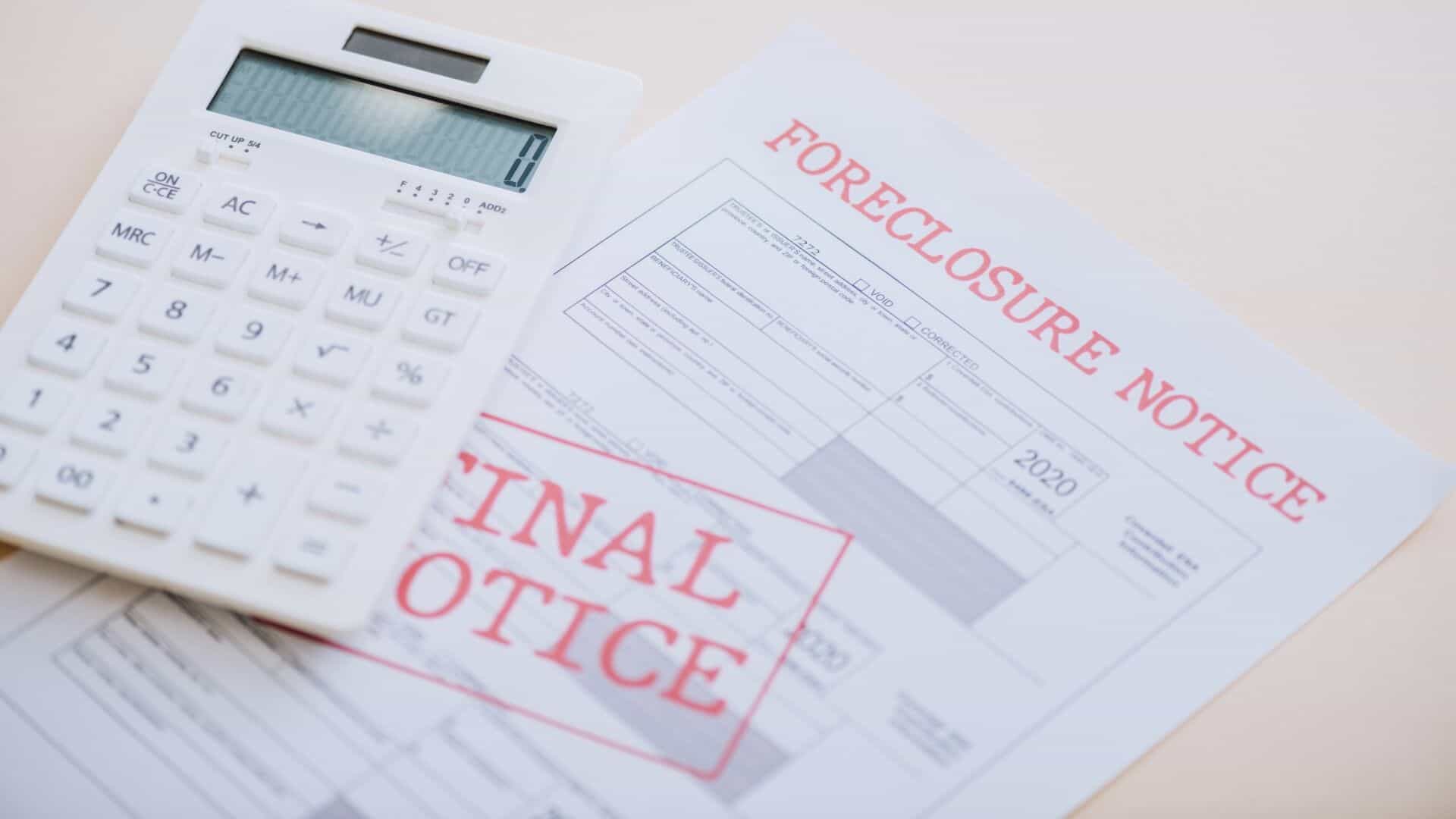Forgive Us Our Debts (Matthew 6:12)

Big Idea: Deal with your guilt by asking God to forgive your debts and extending forgiveness to others too.
In Minersville, Pennsylvania a man cleared his conscience by paying a 44-year-old parking ticket. The police department received an envelope in 2018 with $5 and a note inside. The return address was “Feeling guilty, Wayward Road, Anytown, Ca.”
Police Chief Michael Combs told local news the note said, “Dear PD, I’ve been carrying this ticket around for 40 plus years. Always intending to pay. Forgive me if I don’t give you my info. With respect, Dave.”
The fine for the 1974 parking ticket in the eastern Pennsylvania town was $2. But the person added $3 for interest. The same ticket today would be $20.
This man had walked around since the 1970s with a parking ticket on his mind. But that shouldn’t surprise us, because a lot of us walk around with things on our minds too.
Many of us walk around with a low-grade sense of guilt and regret for the things we know we’ve done that we shouldn’t have. I certainly know what that’s like. I think back to my early years as a husband or as a parent, or to words that I’ve said, or sins I’ve committed. We carry around with us regret for sins committed and mistakes made.
In a New York Times article, columnist David Brooks argues, “Religion may be in retreat, but guilt seems as powerfully present as ever … People have a sense of guilt and sin, but no longer a sense that they live in a loving universe marked by divine mercy, grace and forgiveness. There is sin but no formula for redemption.”
The Gravity of Sin
Add to this the awareness of our own sin.
We understand the grace and mercy of God. But that doesn’t mean for a minute that we aren’t also aware of the holiness and justice of God.
One year, as I was reading the Bible, I was struck with how many times the theme of God’s judgment comes up. If I had to summarize one of the themes of the Bible, it would be this: don’t mess with God.
Again, God’s grace also stands out, but not at the expense of his holiness. God doesn’t trifle with sin. On almost every page you see his judgment, from cleansing the earth of people in Noah’s time, sentencing Israel to 40 years of wandering in the wilderness, opening up the earth to swallow rebels, not allowing Moses to enter the Promised Land, striking down Uzzah for trying to catch the ark, and on and on.
God is just and holy. He’s a consuming fire. He is, as Habakkuk says, “of purer eyes than to see evil and cannot look at wrong” (Habakkuk 1:13).
And it’s not just the Old Testament. In Acts 5, a couple sells a piece of property and gives the money to the apostles, but holds some of it back. Nothing wrong with that. They didn’t have to give any money to the church. They lie to the church in an attempt to appear more generous, and God strikes them down. We read, “And great fear came upon the whole church and upon all who heard of these things” (Acts 5:11).
I guess so!
Jesus said words that can terrify: “Nothing is covered up that will not be revealed, or hidden that will not be known. Therefore whatever you have said in the dark shall be heard in the light, and what you have whispered in private rooms shall be proclaimed on the housetops.” (Luke 12:2-3). Paul says in 1 Corinthians 11:30 that some have become sick or even died for abusing the Lord’s Supper. Peter writes, “it is time for judgment to begin at the household of God” (1 Peter 4:17).
So you have this awareness of our guilt, but you also have an awareness of God’s holiness.
No wonder we are troubled so often with the mistakes we make, not just in the past but on an ongoing basis. So many people carry with them a sense of guilt and shame: that we’ve failed and we don’t know what to do about it.
I remember attending an event on Bay Street in downtown Toronto one day. The room was full of young professionals. The speaker had hooked up a form. You could submit some regret you carried with you, and it would appear on the screen without anyone knowing who’d submitted it. It was staggering. The people in that room looked great, but everybody was carrying guilt and shame.
In his book Guilt and Grace, the Swiss psychologist Paul Tournier describes this world of guilt and condemnation that we live in.
In everyday life we are continually soaked in this unhealthy atmosphere of mutual criticism, so much so that we are not always aware of it and we find ourselves drawn unwittingly into an implacable vicious circle: every reproach evokes a feeling of guilt in the critic as much as in the one criticized, and each one gains relief from his guilt in any way he can, by criticizing other people and in self-justification.
That’s our reality: an unhealthy atmosphere of mutual criticism, guilt, and attempts to deal with that guilt. That’s our social environment. We’re continually told that we can’t do enough, and we know it.
What can we do about it?
Jesus’ Answer
The world doesn’t really provide us with any remedy for our guilt and shame. We know how to judge. We live in an age of public shaming, but there’s no real road back from guilt and shame.
What do we do? Ignoring or denying our guilt won’t work. There’s a much better way to deal with our guilt and shame.
Here’s Jesus’s answer:
Pray then like this…
forgive us our debts,
as we also have forgiven our debtors.
(Matthew 6:12)
Here’s the amazing thing that Jesus tells us to do. We don’t deny our sins. We don’t hide our sins. Instead, we freely confess our sins to God, and we ask him to forgive us just as we forgive others.
I want us to think about this for a minute.
Think about the relief.
Just breathe this in for a minute. Allow your soul to marvel at this reality.
Your sin is not an obstacle to the grace of God.
It doesn’t matter how great your sin is. God’s forgiveness is available to you. I love how Richard Sibbes put it: “There is more mercy in Christ than sin in us.”
Earlier this year I attended a retreat. For some reason on that retreat, I was overcome with a sense of guilt for things I had done a long time ago. The preacher highlighted a verse I’d read before:
For your name’s sake, O LORD,
pardon my guilt, for it is great.
(Psalm 25:11)
At first glance, it’s easy to think that David is saying, “Pardon my sin despite its greatness.” I know that’s how I feel sometimes. Our sin is great, but God’s grace is greater, but God forgives me despite how sinful I am. It’s almost as if God saves me reluctantly despite how bad I am.
In a sermon on this passage, Jonathan Edwards presents a different understanding of this verse. He argues that David bases his plea for pardon on two arguments: God’s reputation and the greatness of his sin. In other words, David doesn’t plead with God to forgive him despite his sins but because of them. He writes: “He is moved to mercy towards us by nothing in us but the miserableness of our case. He doth not pity sinners because they are worthy, but because they need his pity.”
“The greater the guilt of any sinner is, the more glorious and wonderful is the grace manifested in his pardon,” Edwards writes. “It is the honor of Christ to save the greatest sinners.”
Or, as Ray Ortlund says, “Our most inexcusable sin, once nailed to his blood-soaked cross, loses its damning power forever.”
Think about this. Your sin is great. God’s grace is even greater. You can come to him knowing that he will never turn you away because of your sin. He invites you to come to him. He will never run out of grace for you. He welcomes you to come with empty hands and receive his grace.
Take Two Actions
The invitation comes, though, to take two actions.
First, ask God to forgive your debts.
Jesus says to pray, “Forgive our debts.” Jesus likens sin to debt, because we owe God our obedience, but fail to give God what we owe him. But then Jesus tells us to pray that God will drop what we owe him and simply forgive the debt that we owe him. That’s audacious, but that’s exactly what Jesus tells us to pray.
Every day we incur debts to God: sins of omission, sins of commission, sins of action, sins of thought, sins of words. And not just one debt but multiple debts. And we have no way of paying this debt back to God. We are very bad credit risks. And yet Jesus tells us, “Simply ask God to forget about what you owe.” Imagine trying that with the bank! I don’t think it would work. But it works with God.
But asking to be forgiven of the debt involves first admitting that there is a debt. It means coming into the light and admitting that we have a problem. It means that we stop hiding and ask God to let us off the hook for what we’ve done.
Every week as a church, we confess our sins. We read together a confession that’s on the screen. We use a lot of them, but my favorite is this one from The Book of Common Prayer:
Almighty and most merciful Father, we have erred and strayed from your ways like lost sheep. We have followed too much the devices and desires of our own hearts. We have left undone those things which we ought to have done; and we have done those things which we ought not to have done; and there is no health in us. But you, O Lord, have mercy upon us. And grant, O most merciful Father, for Jesus’ sake, that we may hereafter live a godly, righteous and joyful life, to the glory of your holy name. Amen.
And then we go running to the Lord’s Table. This confession of sin every week is so freeing. There is such grace in not pretending that we have it all together, that we are not a church of perfect people. We are a church of strugglers and sinners who can’t get it right, and every week we celebrate the fact that there is grace — plentiful grace — at the cross for us.
But that’s not the only thing we need. We also need honesty in our relationships with each other in which we can come to God together and pray for each other as we confess our sins. Notice again in this passage: “Forgive us our debts.” Sometimes it helps to be very specific about what those debts are. Not everyone has to know, but somebody probably should.
In his book The Death of Porn, Ray Ortlund talks about what this can look like. He talks about getting together and honestly confessing our sins to each other in real time, regularly, and then praying for each other. “An honest man in a praying brotherhood is located right where God has promised his gentle healing will flow. And that man and his brothers together become a healing movement in our suffering world.”
I just want to invite you to step out from having to hide your sins. Come out into the light. Ask God to forgive your debts. Ask him to take them away. Enjoy the freedom of not having to pretend with him. Jesus has paid for every one of your sins, past, present, and future. Get real with him. Bask in his grace. Help others step into that freedom too. Confess your sins to God and with one another.
But there’s one other thing.
Second, forgive others too.
Jesus says, “Forgive us our debts, as we also have forgiven our debtors” (6:12). And then he adds this postscript in verses 14 and 15: “For if you forgive others their trespasses, your heavenly Father will also forgive you, but if you do not forgive others their trespasses, neither will your Father forgive your trespasses.”
Forgiven people forgive others. It makes no sense to enjoy God’s forgiveness and then not to extend that forgiveness to others who have wronged you. In fact, your forgiving of others is a good test of whether you have actually ever experienced God’s forgiveness. Forgiveness provides evidence of our forgiveness; a lack of forgiveness may be evidence that we haven’t experienced God’s grace as we think we have. Forgive as you’ve been forgiven.
Friend: your sin and your failings are real. But there is more grace in God than sin in you. Deal with your guilt by asking God to forgive your debts and extending forgiveness to others too. Step into the light. Confess your sins. And allow God’s grace to transform not just you but everyone around you too.





